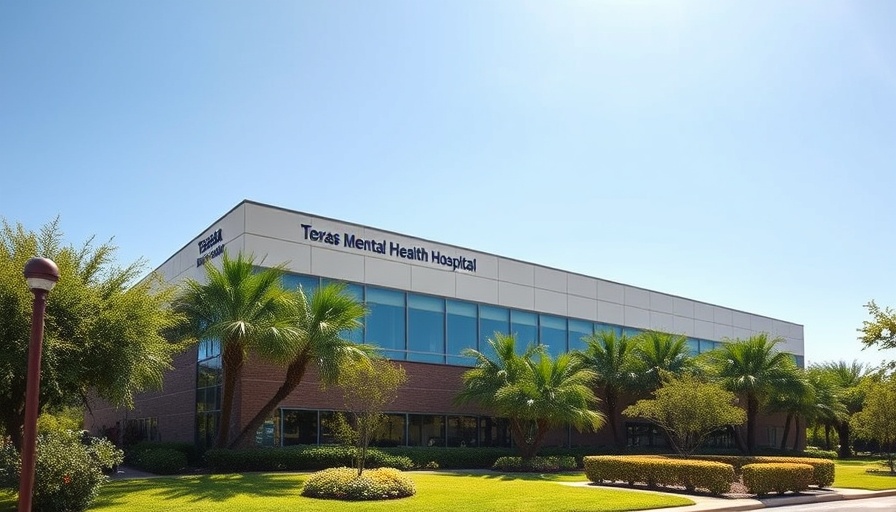
A New Dawn for Mental Health in the Texas Panhandle
On June 10, a pivotal moment unfolded in Amarillo, Texas, as state officials broke ground on a new psychiatric hospital, heralding a significant investment of $159 million from the Texas Legislature. This initiative is part of a broader $1.5 billion commitment to enhance mental health resources across the state, particularly for the underserved populations in rural areas. With this facility, which is expected to be completed by 2027, the Panhandle region is set to gain its first dedicated inpatient mental health hospital, addressing a long-standing need for accessible mental healthcare services.
Bridging the Mental Health Gap in Rural Communities
Amarillo and its surrounding areas are home to nearly 436,000 individuals, many of whom struggle to access mental health resources due to the vast distances involved. Currently, the nearest psychiatric hospital is in Wichita Falls, over 200 miles away. The establishment of this new hospital is vital, as local mental health officials have long advocated for better access to care. Potter County Judge Nancy Tanner emphasized the significance of the project, stating, "It’s a big deal to get this hospital here... Hopefully, this will benefit our whole community as soon as it opens." This sentiment echoes the frustration of many residents who have faced barriers to mental health treatment.
Investing in Community Health
Governor Greg Abbott has pledged that the opening of this psychiatric facility will not only provide more mental health options but will also mark progress in expanding healthcare access in Texas's rural communities. The new hospital will feature 75 beds, with 50 designated for individuals from the criminal justice system who are undergoing mental health evaluations. This strategic approach seeks to create a comprehensive support system for some of the most vulnerable individuals.
The Collaborative Effort Behind the Project
The successful establishment of the Panhandle State Hospital is a collaborative achievement involving local leaders and agencies. The Texas A&M University System played a crucial role in identifying the site for the hospital, which was once used for veterinary diagnostics, thus demonstrating how different sectors can unite for community wellbeing. As President Walter Wendler stated, "The land lease is an example of how state agencies can and should work together for the good of citizens." This spirit of cooperation is essential as local outpatient resources exist, yet inpatient facilities have been nearly absent, leaving many residents in need of immediate care without options.
A Lifeline for Mental Health Services
With the new hospital, mental health professionals anticipate a positive transformation in treatment accessibility and efficiency. Dan Thompson, a representative from the Texas Panhandle Centers, highlighted the urgency of the situation, noting, "A lot of folks in the Panhandle see that there is a need for people to get treatment and the help they need." This facility aims to fill that gap, offering a safe and welcoming space for people seeking help.
Looking Ahead: What This Means for Texas
The $1.5 billion investment into mental health is not only a financial commitment but also a recognition of the critical nationwide conversation surrounding mental health care. With mental health issues on the rise, especially among rural populations, these new facilities can be a substantial step towards breaking down barriers. Local leaders are hopeful that the Panhandle State Hospital will enable timely interventions, reduce hospitalizations, and ultimately save lives.
As we look ahead, the importance of mental health resources becomes increasingly clear. The groundbreaking of the Panhandle State Hospital is not just about the bricks and mortar; it symbolizes a renewed commitment to the mental health of Texans. It stands as a reminder that communities can come together—state officials, local leaders, and citizens alike—to foster healthier environments.
If you’re interested in learning more about mental health resources in Texas or staying updated on local developments, consider subscribing to our newsletter. Let’s continue to support and advocate for mental health in our communities.
 Add Element
Add Element  Add Row
Add Row 



Write A Comment